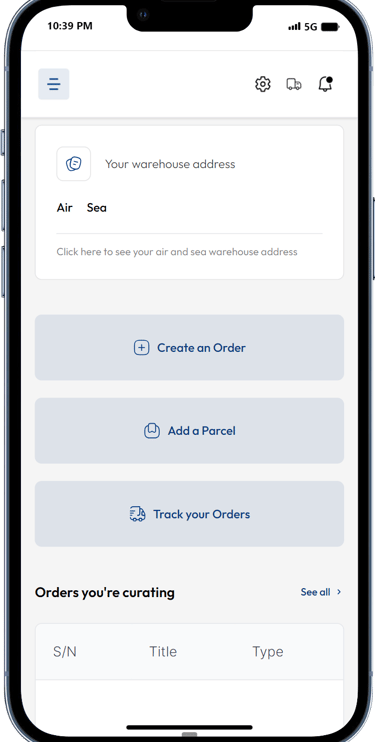Africa's Supply Chain: A Complex Puzzle
Africa's supply chains face unique challenges including poor infrastructure, corruption, and limited digitalization. Overcoming these requires infrastructure investment, policy reforms, and technology adoption to build a more efficient and resilient supply chain ecosystem.
7/16/2024
Global Supply Chain Challenges
Supply chains, the intricate networks that transport goods from production to consumption, face hurdles worldwide. Natural disasters, economic fluctuations, and geopolitical tensions can disrupt these networks, leading to shortages, price hikes, and delays. The recent pandemic underscored the fragility of global supply chains, as lockdowns, transportation bottlenecks, and labor shortages caused widespread chaos. Additionally, the growing demand for faster delivery times, fueled by e-commerce, has put immense pressure on supply chain efficiency.
Africa's Unique Supply Chain Landscape
While global supply chains grapple with their own set of challenges, Africa’s supply chains face a unique set of obstacles. The continent’s infrastructure deficit is a major bottleneck, with poor roads, inadequate ports, and limited rail networks hindering the smooth movement of goods. Erratic power supply further compounds the problem, leading to production delays and equipment failures.
Corruption and bureaucracy are also endemic to many African countries, creating an environment that is hostile to businesses. Customs procedures can be time-consuming and costly, while bribery is often expected to expedite processes. These factors contribute to increased operational costs and delays.
Furthermore, Africa's diverse geography, with vast distances between urban centers and limited transportation options, poses significant logistical challenges. The continent's reliance on cash-based economies and limited access to financial services also hampers supply chain efficiency.
Solutions to Africa's Supply Chain Conundrum
To overcome these challenges, Africa needs a multi-pronged approach.
Infrastructure Development: Investing in transportation infrastructure, such as roads, railways, and ports, is crucial for improving connectivity and reducing logistics costs. Additionally, expanding energy generation and distribution networks is essential for ensuring reliable power supply.
Policy Reforms: Simplifying customs procedures, reducing bureaucratic red tape, and combating corruption are essential steps to create a business-friendly environment. Governments can also implement policies that promote trade and investment.
Digital Transformation: Technology offers a powerful tool for addressing Africa's supply chain challenges. Digital solutions such as supply chain visibility platforms, blockchain, and artificial intelligence can optimize operations, reduce costs, and enhance transparency.
Case Study: A Nigerian Business and the Chinese Market
Imagine a small business in Nigeria looking to source products from China. This endeavor is fraught with challenges. Finding reliable manufacturers, navigating language and cultural barriers, and arranging shipping and customs clearance are just the beginning. High transportation costs, currency fluctuations, and the risk of counterfeit goods add to the complexities.
Digital tools can be a game-changer. Online platforms can connect Nigerian businesses with Chinese suppliers, facilitating communication and trade. Digital payment systems can reduce transaction risks, while real-time tracking of shipments can provide visibility and peace of mind.
Africa's supply chains are undoubtedly complex, but with strategic investments in infrastructure, policy reforms, and digital technologies, the continent can unlock its economic potential and build more resilient supply chains.
Checkit's Proc360: Empowering Micro and Small Businesses in Africa
Checkit's Proc360 is specifically designed to cater to the unique needs of micro and small businesses (MSBs) in Africa. These enterprises often face disproportionate challenges in managing their supply chains, including limited resources, lack of access to finance, and operational inefficiencies.
By providing fast digital payments, Proc360 empowers MSBs to conduct transactions swiftly and securely, improving cash flow management and reducing the reliance on cash. This is particularly crucial for businesses operating in informal economies where access to traditional banking services is limited.
Moreover, Proc360's focus on supply chain visibility is a game-changer for MSBs. By enabling real-time tracking of goods, businesses can optimize inventory management, reduce stockouts, and improve delivery times. This is essential for enhancing operational efficiency and customer satisfaction.
Building trust is paramount for MSBs, especially when dealing with new suppliers or customers. Proc360's platform helps to foster trust by providing a secure environment for transactions and by verifying the identities of businesses. This can significantly reduce the risk of fraud and bad debts.
In essence, Proc360 offers a comprehensive solution to the challenges faced by African MSBs. By providing digital payment solutions, enhancing supply chain visibility, and building trust, the platform empowers these businesses to grow and thrive.


